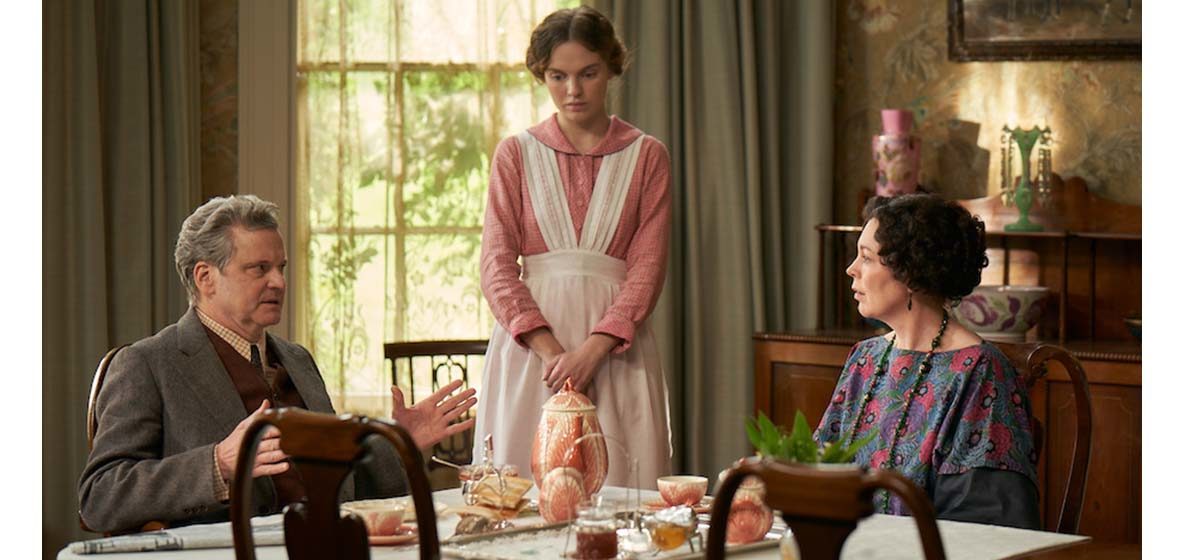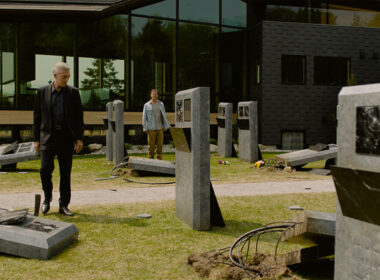The Law Society Journal and Transmissions Films have ten double passes for Mothering Sunday to offer.
For a chance to win, email us at journal@lawsociety.com.au with the subject line MOTHERING SUNDAY and your contact details before Monday 6 June.
Aussie actress Odessa Young joins a cast of British thespians in a seemingly classic period drama that manages to bring a breath of fresh air to the genre. With Colin Firth, Olivia Coleman and Josh O'Connor.
I appreciate a quietly subversive film for the way it eludes most fans of the genre. Mothering Sunday takes on the Downton Abbey crowd by dragging its pace, changing the tone, and daring to add an aesthetic thrust to its visuals. The result confused even the most attentive critics with the most dumbfounded opinions. One said the tempo is off – as if any movie owes you stimulation every ten minutes. Other cried the film wasn’t sexy enough, but then another confessed it was too sexy. It tries to be too poetic, like accusing a cook of daring to use salt. It’s too similar to British genre pieces but also not close enough? All those things may be true in this little gem of a film, but that’s good; why wouldn’t it be?
Mothering Sunday is adapted from a novella by Graham Swift that I never read, by the pen of Lady Macbeth and Succession alumni Alice Birch, and directed by Eva Husson. It tells the story of a secret affair between commoner maid Jane (Australian actress Odessa Young), and young aristocrat, bachelor du jour Paul (Josh O’Connor). On a sunny Mother’s Day, Jane is given the day off by her employers, the Nivens (Colin Firth and Olivia Coleman, playing Colin Firth and Olivia Coleman respectfully). At the same time, they join friends for a celebratory engagement party. Jane instead rides her bike to the Sheringham’s estate to spend time with Paul, who we discover from a series of flashbacks, is one part of the engagement in question. This happens to be the last time the two can spend together.
Taken by committed youthful lust, Jane and Paul spend most of their time naked while having the dullest conversation. It makes sense: they’re young, attractive, and young and attractive people won’t waste their time finding out the meaning of life when action is on the table. It feels natural, endearing even. When it’s revealed Paul is marrying another aristocrat lady (Emma D’arcy, stealing every scene), nothing changes in the dynamic but this little empty sadness that lingers for a bit. Jane doesn’t spend her time sad about love lost. She understands the social rift is too large to even be considered, and if she gets to at least go for another round around the block, then so be it.
I suspect a gorgeous sequence halfway through is the recipient of all those “it’s too slow” comments (I do loathe that criticism for any film, let alone one that isn’t even remotely slow). It’s an extended montage where the wealthy families have a lavish lunch by the river, talking about the tragic woes that consume them. At the same time, a young naked Jane hops around the Sheringham manor indulging in books, a beer and a piece of meat pie. If ever that was a scene that deserved its “calm before the storm”, is this one, as it precedes the one event that changes Jane’s life.
The script is expertly crafted. Birch frames the narrative around two fast forwards – one where an old Jane is writing a book about this event, and then, as an older lady, remembering her first love. Apart from the ending, which has an ugly moment of banal emotion the film certainly didn’t earn, it makes it relatively sincere and heartfelt.
Husson takes other risks beyond what the script gives her, which is always a sign of a bold filmmaker. Her style isn’t Malickian unless you think Malick is only about slow shots of hands caressing things. Malick is a spiritual director, and his images elevate the godliness within his characters. Husson is more grounded, more Emily Bronte to Malick’s Woolf. There is a visual detail that proves Husson’s unique perspective. As a maid during World War I, Jane wouldn’t be the same archetype of beauty of our modern patriarchic standards. In close-ups of the female body, Jane doesn’t hide hair, the imperfections, or even the hair on her upper lip. It feels like an important statement, even more, that she doesn’t dwell on it. It’s so naturally challenging it made me excited about what other ideas she can bring to the table.
I hope Husson and Birch work together and develop their craft together again. Given a larger budget and complete free rein, they have the markings of an exciting new generation in British cinema. The cheap impulse at the end could’ve been a producer’s whim – it certainly feels like that. But even if it wasn’t, as an artistic experiment, it only proves that as filmmakers, the two are not afraid of taking risks, even if they don’t pay off. The mere fact they went after a traditional genre, used the players of that genre itself, and then proceeded to slowly shake its foundation with subtlety and grace is a move of genius. Even if very few noticed, I’ll celebrate it.




